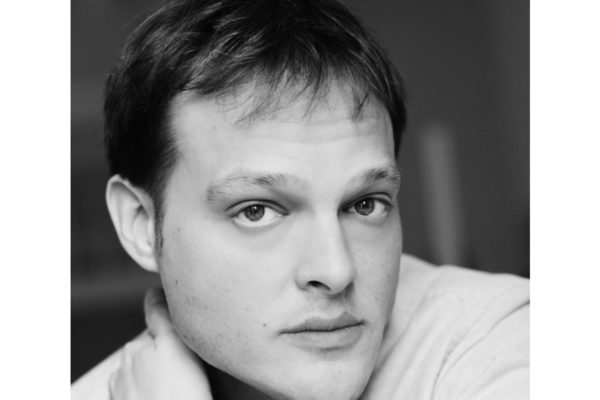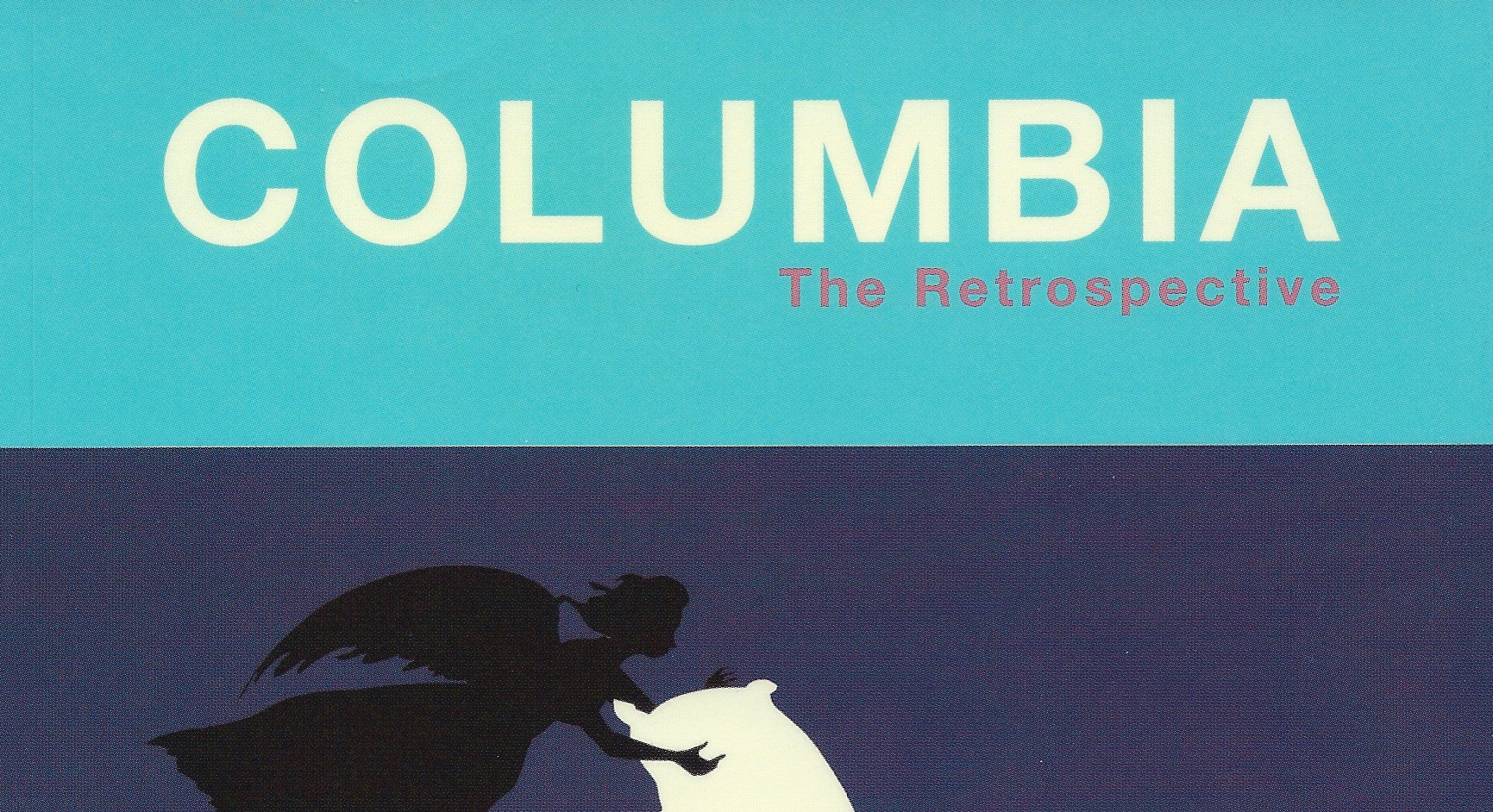What Belongs To You, the debut novel by Garth Greenwell, feels intimate, like a sleek, conspiratorial conversation in the dark. Greenwell, who is also a poet, tells the story of an American teacher in Bulgaria with sensuously textured prose that often trembles with the powerful ambiguity of verse. What Belongs To You follows the unnamed narrator’s complex relationship with Mitko, a charmingly abrasive local hustler who shimmers between states of being vainly demanding and beautifully vulnerable. The three parts of the novel depict their first meeting, the caustic breakdown of their relationship and the disease that brings Mitko back into the narrator’s life. What propels the narrative of the book most are the closely observed moments that we have the privilege of navigating in Greenwell’s thoughtful, embodied language. To read What Belongs To You is to feel deeply, physically connected with the experience of surreptitious sex in bathroom stalls, or the gaze of a disapproving father whose eyes hover in the rear-view mirror as he drives home the friend with whom you’ve had the first tremors of an erotic encounter. In Greenwell’s novel, moments like these are both an occasion for intense, immediate experience, and the point at which the past accrues its consequences to an almost agonizing intensity.
Garth Greenwell is the author of What Belongs to You, which both the New York Times and Publishers Weekly picked as one of their Top 10 books of 2016. The novel was also a finalist for the National Book Award and the Center for Fiction First Novel Prize. He is also the author of a novella, Mitko, which won the 2010 Miami University Press Novella Prize and was a finalist for the Edmund White Debut Fiction Prize. A native of Louisville, Kentucky, he holds graduate degrees from Harvard University and the Iowa Writers’ Workshop, where he was an Arts Fellow. His short fiction has appeared in The Paris Review, A Public Space, StoryQuarterly, and VICE. He lives in Iowa City, where he holds the Richard E. Guthrie Memorial Fellowship at the University of Iowa.
Marcus Creaghan: What Belongs To You first appeared, in part, as the novella Mitko. Did you always intend to build on the original project, or was there something that pulled you back to expand the book?
Garth Greenwell: Mitko was the first fiction I had ever written, and when I finished it I thought I was done with the story. The second section came very much by surprise, and I wasn’t really aware that it was connected to the first section until I was about half way through. The third section was also unplanned—and the truth is that I wrote the whole book sentence by sentence, without a clear structure in mind, even without the idea that I was writing a novel. It wasn’t until the second-to-last scene of the book that I realized there was a kind of gravity—structural and thematic echoes as much as narrative continuity—that made the pieces of what I had been writing cohere into a whole.
MC: The tension of the novel revolves around the narrator’s relationship with Mitko, an oftentimes homeless young man who is charmingly irreverent but also susceptible to sudden bursts of aggression. The narrator comments at one point that Mitko is adept at spotting faults in others that “[were] in his power either to exploit or to repair.” And it seems like the narrator’s connection to Mitko more broadly could be arranged around the axis of these two terms: exploitation of his economic situation on the one hand and a desire to somehow repair those circumstances on the other. What do you think pushes the narrator to either end of that spectrum?
GG: I think that’s a pretty fair characterization of the narrator’s motives toward Mitko. I also think those are aspects of the power dynamics in any relationship. The ambivalence my narrator feels is also, I think, maybe a heightened representation of something that seems very common in relationships. I’ve always loved something that William James says in the introduction to The Varieties of Religious Experience, where he defends his use of the “extreme case” as functioning for the social scientist in the same manner as the microscope does for the natural scientist: extremity can allow us to see elements that go unnoticed in more common experiences.
I hope that the elements in the relationship between Mitko and the narrator that might seem to set it most apart—the explicit transaction with which it begins, the power imbalance between the characters—in fact make it illustrative of any relationship. I think this is especially true in regards to Mitko’s inaccessibility, the way he remains a mystery to the narrator, who is never sure whether what passes between them is performative or sincere. I think that’s a fairly universal anxiety, due to the fact that we can never have unmediated access to another consciousness, which means that we can never be sure whether we are genuinely sharing the same story with another person. That’s as true for a marriage of thirty years as it is for the two men in my novel.
I think the narrator is forced by his relationship with Mitko to recognize the point at which concern for the other comes into conflict with concern for the self, which is to say his moral limits. He wants to save Mitko; he wants to be safe himself. I’m interested in the way in which generosity and predation not only coexist, but can become difficult to distinguish. I think that’s true on both sides of this relationship.
MC: Near the beginning of your novel you write that “warning, in places like the bathrooms at the National Palace of Culture…is like some element coterminous with the air, ubiquitous and inescapable, so that it becomes part of those who inhabit it, and thus part and parcel of the desire that draws us there.” The narrator later tells of how his first sexual experience was less about exhilaration and more about “setting aside restraint, of pretending not to be afraid, a thrill of release so intense it was almost suicidal.” Do you think his relationship with Mitko is an extension of this history of self-harm?
GG: I think that’s one aspect of the kinds of sex the novel explores, but there are others. Certainly I was interested in exploring how certain lessons the narrator is taught about his life very early—about its value or lack of value, lessons queer people continue to be taught, here and elsewhere—play out, even after he knows those lessons were false. I was interested in exploring a shame that is continuous with but distinct from the shame that is such a common theme in earlier queer books. My narrator is an out and proud gay man. He also continues to be shaped by ideas about queerness he has rejected.
But those ideas certainly don’t explain him or exhaust his motives, just as ideas of shame or self-harm aren’t adequate to the spaces and sexual communities the novel explores. Nor are they adequate to his relationship with Mitko. I do think this is a love story, however strained, and I think the relationship at its heart allows for moments of genuine affection and intimacy. Those moments don’t cancel out the darker feelings and motivations between them; neither are they canceled out by them.
MC: G. downloads a program that allows her to track her father’s actions on the internet. Mitko arranges his week through Skype calls with his priyateli (friends or clients), and shows the narrator his history by going through photos on social media. When many contemporary novelists still shy away from depicting the Internet, what advantages or disadvantages did you discover in foregrounding that technology?
GG: I really didn’t think of that as being anything remarkable, and I hope the novel observes technology in the same way as it observes other aspects of the world. The one intentional element, I guess, was that I wanted to portray the community that technologies like Skype have allowed for queer people in places like Bulgaria, especially outside of the big cities. But really these are tools of communication like any other, and I didn’t think I was doing anything particularly noteworthy in having them play a role in the novel.
MC: After a failed sexual encounter the narrator notes how “helpless desire is outside its little theater of heat, how ridiculous it becomes the moment it isn’t welcomed, even if that welcome is contrived.” Did you struggle to sustain that “theater of heat” over the course of an entire novel? And if you did, what did you do to, how could it be put, maybe re-ignite the prose?
GG: I wrote the novel over four years, working in two-hour shifts in the early morning before a day of teaching. There were certainly days, weeks, long periods where inspiration flagged. But I really was working at the sentence level, not working toward the end of anything, but instead trying to inhabit particular moments—the moment of a scene, the moment of writing—as deeply as possible.
MC: At one moment when the fragile performances at play in the process of desire due face a rupture, or a sudden interruption, the narrator regrets that he must speak in Bulgarian. He bemoans the fact that he has “to speak baldly in his [Mitko’s] language, without any of my usual defenses.” In these moments of heightened sexual experience, what kind of securities do you think a facility with language can afford us?
GG: I think my narrator experiences shame as being at the center of his life, and he has come to associate a certain use of language with dignity. And maybe his greatest moral flaw is his overvaluation of dignity, which becomes a kind of defense, a way of keeping the world at a certain distance. The fact that he has to speak to Mitko in Bulgarian, a language he uses like a child, is part of what allows the relationship to challenge and change him in the way it does.
MC: Do you consider yourself to be working in a tradition of gay writers/writing? And if so, what is your relationship to that tradition?
GG: I do. Thematically and stylistically, I hope my book is in conversation with writers from Proust and Mann to Virginia Woolf, James Baldwin, Pedro Lemebel. A tradition is just a conversation writers have with one another across time. The ongoing conversation between queer writers remains vibrant and exciting across the borders of other kinds of identities.
WBTY is a queer book because of that conversation, and also because it is centered on queer lives and narrates those lives, I hope, in a way that doesn’t try to explain them or make them palatable to people who resist them. I understand the resistance on the part of some people to talk about queer writers or queer books, the fear that viewing them in such a context lessens their reach. But I don’t think we should make the case for the universal reach and import of queer stories by deemphasizing queerness.
MC: If you could give a piece of writing advice to a younger version of yourself, what would it be?
GG: Worry less. Work more.
MC: The response to the book has been overwhelmingly positive. It must be such an interesting shift from the quiet work of composition to the public work of promoting the finished book. How has that transition treated you?
GG: On one hand, it has been wonderful, amazing. It still feels like a miracle to meet someone who has read my book. On the other hand, there’s something disconcerting about becoming suddenly visible as a writer after working in total invisibility for twenty years. I’m grateful for that visibility, but it’s destabilizing, and I’m eager to turn away from the public work of putting a book into the world and to get back to the private work of writing.
MC: Do you have your next project in mind? If yes, what are some of the challenges you expect from it?
GG: I am working on something new. The challenge remains the same: to be as true as possible to the characters and the sentences I’m writing.
Marcus Creaghan is in the fiction concentration of Columbia’s MFA in creative writing. His work has appeared in Vox, Catapult and F(r)iction Magazine among other places.



